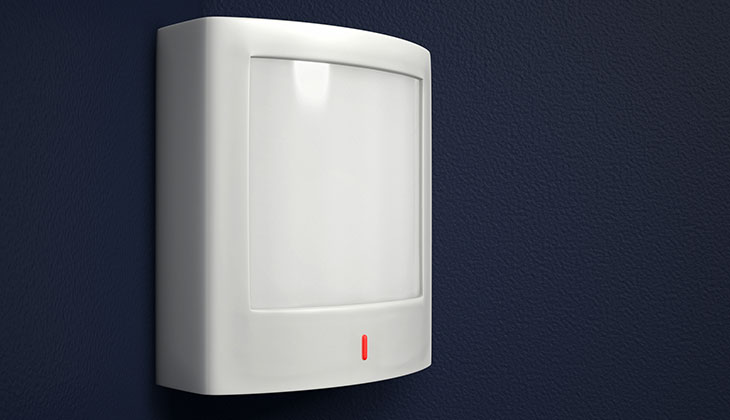Caravan alarms - choosing the right one
Chris Hogan, 15th October 2015, Caravan
On average about eleven caravans are stolen every day, some by opportunists, others by organised criminals who'll have them out of the UK within hours. Anti-theft devices take many forms, from wheel clamps and hitch-locks to sophisticated alarm systems costing hundreds of pounds.

It's anti-theft alarms we're going to concentrate on in this article - the different types and their pros and cons.
What do you want to protect?
There are two main different but related reasons for installing an alarm - to prevent thieves entering and stealing your possessions and secondly to prevent the caravan itself being taken away.
Owners of static caravans will probably be less concerned about theft of the caravan itself but it's not unknown. If it does happen it tends to be from sites that are closed for part of the year, so security of the site itself is more important.
Protection from burglary
Owners of both static and touring caravans will therefore be interested in stopping light-fingered ne'er-do-wells gaining entry to their 'vans and lifting valuables. Even if you don't consider that there's much worth taking in your caravan, the cost of replacing even mundane items all adds up.
Bottom of the ladder
At the most basic level, alarms stickers (on their own, without an alarm) are worth putting on, but most serious thieves will know they are fakes. The next step up is to get a personal attack alarm and set it up so that it triggers if someone opens the door.
But it's tricky to do it properly and if it goes off on a very windy day you aren't going to have many friends on site when you get back.
Wired or wireless?
If you've got permanent access to mains electricity there's nothing to stop you installing a household alarm, in which case there's a huge variety of options to choose from. But most touring 'van owners and many static owners won't be able to do that so battery-operated wireless alarms are the best option.
Wireless alarms will usually come with one or more motion detectors (PIRs) which are set up inside the caravan, usually high up in the corners. You then have to decide what sort of warning you get. Some alarms have sirens that go off, others have a SIM card and will text you to let you know that they've been set off, some have both.
Siren, SMS or both?
If your caravan's stored on an unmanned site, then the siren might put opportunist thieves off, but not experienced burglars. If it's stored at home or a manned site, then you'll need to balance the possible disturbance to neighbours that a siren causes, particularly if you get lots of false alarms. But it is more likely to make thieves disappear if they know people are about to arrive on the scene.
On the other hand, do you really want to be put in a position where you'll be expected to tackle any number of burglars? Then again, if you're in an area where the mobile reception is as bad as it is where we are, then there won't be any point in being sent a text!
There isn't a right or wrong answer to this one, you just have to decide which is best for your situation and go with that.
Anti-removal
You have the same dilemma with alarms designed to put people off towing your caravan away - whether to be warned by siren, text or both.
These alarms aren't significantly different to internal alarms, they'll just come with other detectors designed to go off if the caravan is moved. The most common is a magnetic leg sensor which attaches to the spindle and detects the winding motion as someone readies your caravan for the off.
Trackers
In recent years alarms combined with tracking devices have become popular. They used to be very expensive but are more affordable now, in fact since 2012 Swift caravans have had them fitted as standard.
Recovery rates are excellent with trackers, and they are found quickly too, so they would appear to be a good investment. Many people keep the alarms in silent mode (i.e. no siren) as it means the thieves aren't alerted. This means there's no chance of confrontation and the caravan is less likely to be damaged - the caravan can simply be recovered when it's safe to do so.
Insurance benefits
Fitting an approved system also carries the extra benefit of a potential insurance discount. Reducing theft of and from caravans keeps claims down, which keeps costs down and premiums low, so it makes sense for insurers to give incentives for reducing claims.
But there's another, perhaps more subtle influence of insurance on security and that's the 'forced entry' stipulation. Quite often insurance will only pay out for theft of possessions from a caravan if there's evidence of violence or forced entry. Basically you have to make it hard for them to get in or your claim may be refused.
What's your experience been?
We hope this quick guide has been useful but there's no substitute for experience. Why not let us know how you've got on with alarms, whether it's good or bad? If there's enough responses we can run a follow-up article, just email insurance@cetamail.com or reply to the newsletter.